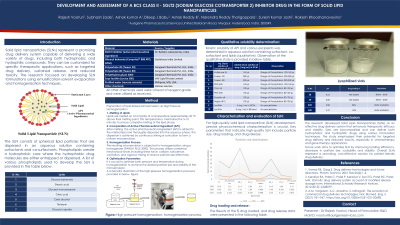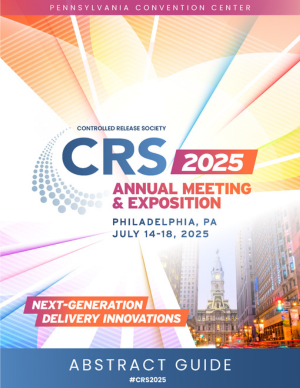Nanomedicine and Nanoscale Delivery (Focus Group - NND)
(408) Development and assessment of a BCS class II drug in the form of solid lipid nanoparticle

Introduction: Liposomes and polymeric nanoparticles are widely used in drug delivery but have limitations. Polymer-lipid hybrid nanoparticles merge the benefits of both, offering high biocompatibility, stability, and sustained drug release for applications like gene transfer, chemotherapy, and vaccine delivery.
Solid lipid nanoparticles (SLN) comprise lipid particles in an aqueous solution with a hydrophobic core for drug entrapment. They are biodegradable, stable, and provide extended drug release, making them highly dispersible and cost-effective for prolonged drug action from a single injection.
Solid lipid nanoparticles (SLN) comprise lipid particles in an aqueous solution with a hydrophobic core for drug entrapment. They are biodegradable, stable, and provide extended drug release, making them highly dispersible and cost-effective for prolonged drug action from a single injection.
Learning Objectives:
- Acquire knowledge on manufacturing solid lipid nanoparticles that are easily scalable.
- Can identify suitable excipient selection procedures for manufacturing SLNs.
Dileep J Babu Bikkina – Scientist, Formulation R&D, Aurigene pharmaceutical services limited

Rajesh Vooturi
Head of formulation development
Aurigene pharmaceutical services limited
Hyderabad, Telangana, India

